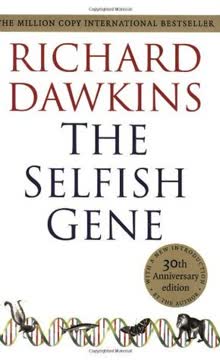Key Takeaways
1. The search for identity and belonging in a complex racial landscape
"I was trying to raise myself to be a black man in America, and beyond the given of my appearance, no one around me seemed to know exactly what that meant."
Navigating racial identity. Barack Obama's journey is fundamentally shaped by his mixed-race heritage and the search for his place in American society. Growing up in Hawaii and Indonesia, he experiences a unique racial landscape that differs from mainland America. This background both complicates and enriches his understanding of race relations.
Confronting stereotypes. As he moves to the mainland for college and later to Chicago, Obama encounters more rigid racial categories and expectations. He grapples with stereotypes about black men, trying to forge his own identity while also connecting with the broader African American community. This struggle leads him to explore his African roots and delve deeper into black history and culture.
Finding community. Obama's search for belonging ultimately leads him to community organizing in Chicago, where he finds a sense of purpose and connection. This work allows him to engage with the realities of urban black life while also developing his leadership skills and political consciousness.
2. The impact of absent fathers and the power of family narratives
"I thought about that phrase, 'the father I never had.' That was the phrase, I realized, that I'd been looking for. The father I had never had...and who I would miss all the same."
Shaping identity through absence. The absence of Obama's Kenyan father looms large in his life, influencing his self-perception and aspirations. He grapples with the idealized image of his father, constructed from family stories and brief encounters, against the reality of his abandonment.
Maternal influence. Obama's mother plays a crucial role in shaping his worldview and values. Her unconventional life choices and emphasis on education and social justice profoundly impact his development. Through her, Obama gains an appreciation for cultural diversity and intellectual curiosity.
Grandparental guidance. In the absence of his father, Obama's maternal grandparents become significant parental figures. Their experiences, including their own struggles with racial attitudes, contribute to his understanding of America's complex racial history.
3. Navigating cultural divides and the challenges of assimilation
"I had learned not to care. I blew a few smoke rings, remembering those years. Pot had helped, and booze; maybe a little blow when you could afford it."
Straddling worlds. Obama's experiences in Indonesia and Hawaii expose him to diverse cultures from a young age. This multicultural upbringing gives him a unique perspective but also creates challenges as he tries to fit into different social contexts.
Code-switching. As he moves between different racial and cultural environments, Obama becomes adept at adjusting his behavior and language. This skill serves him well but also leads to internal conflicts about authenticity and belonging.
Seeking authenticity. The pressure to assimilate into mainstream American culture conflicts with Obama's desire to connect with his African American heritage. This tension leads him to explore various expressions of black identity, from campus activism to community organizing.
4. The role of community organizing in addressing social issues
"Change will not come if we wait for some other person or some other time. We are the ones we've been waiting for. We are the change that we seek."
Grassroots empowerment. Obama's work as a community organizer in Chicago introduces him to the power of collective action. He learns to mobilize communities around shared concerns and to navigate complex political landscapes.
Challenges of organizing. The book details the frustrations and small victories of community organizing, highlighting the persistence required to effect change. Obama grapples with the slow pace of progress and the limitations of grassroots efforts in addressing systemic issues.
Personal growth through service. Community organizing not only allows Obama to contribute to social change but also helps him develop a deeper understanding of urban African American life. This experience shapes his political philosophy and leadership style.
5. Confronting racial prejudice and systemic inequality
"The worst thing that colonialism did was to cloud our view of our past."
Structural barriers. Through his work in Chicago, Obama witnesses firsthand the impact of systemic racism on black communities. He confronts issues such as unemployment, poor housing, and inadequate education that perpetuate cycles of poverty.
Personal experiences of racism. The book recounts several incidents of racial prejudice that Obama encounters, from subtle microaggressions to more overt discrimination. These experiences deepen his understanding of the pervasiveness of racism in American society.
Strategies for change. Obama explores various approaches to addressing racial inequality, from grassroots organizing to political engagement. He grapples with the tension between working within existing systems and pushing for more radical change.
6. The journey of self-discovery through connection with ancestral roots
"For a span of weeks or months, you could experience the freedom that comes from not feeling watched, the freedom of believing that your hair grows as it's supposed to grow and that your rump sways the way a rump is supposed to sway."
Seeking connection. Obama's trip to Kenya represents a pivotal moment in his search for identity. By connecting with his father's family and heritage, he gains new insights into his own background and place in the world.
Complexities of heritage. The visit to Kenya reveals both connections and disconnections with his African roots. Obama grapples with the realities of post-colonial Kenya, which challenge some of his preconceptions about his ancestral homeland.
Personal transformation. The experience in Kenya helps Obama reconcile different aspects of his identity. It provides a sense of grounding in his African heritage while also clarifying his American identity.
7. The complexities of post-colonial African societies
"If everyone is family, no one is family."
Legacy of colonialism. Obama's observations in Kenya highlight the ongoing impact of colonial rule on African societies. He witnesses the economic disparities, political corruption, and cultural tensions that persist in the post-independence era.
Challenges of development. The book explores the difficulties facing developing nations like Kenya, including poverty, inadequate infrastructure, and the struggle to build stable political institutions.
Cultural preservation vs. modernization. Obama observes the tension between traditional African cultures and the pressures of globalization and modernization. This conflict is reflected in both societal structures and individual lives.
8. The transformative power of education and personal growth
"The study of law can be disappointing at times, a matter of applying narrow rules and arcane procedure to an uncooperative reality; a sort of glorified accounting that serves to regulate the affairs of those who have power--and that all too often seeks to explain, to those who do not, the ultimate wisdom and justness of their condition."
Educational opportunities. Obama's academic journey, from his early education in Indonesia and Hawaii to his time at Occidental College and Columbia University, shapes his worldview and ambitions. Education becomes a pathway for social mobility and intellectual growth.
Intellectual exploration. The book details Obama's engagement with various philosophical, political, and literary works that influence his thinking. This intellectual curiosity drives his personal development and political consciousness.
Professional aspirations. Obama's decision to pursue law school reflects his desire to gain tools for effecting social change. His legal education at Harvard further hones his analytical skills and understanding of systemic issues.
9. Reconciling multiple cultural identities and heritage
"I ceased to advertise my mother's race at the age of twelve or thirteen, when I began to suspect that by doing so I was ingratiating myself to whites."
Hybrid identity. Throughout the book, Obama grapples with his multiracial and multicultural background. He navigates the complexities of being both black and white, American and partially foreign-raised.
Choosing identities. Obama's journey involves conscious decisions about how to present and identify himself in different contexts. He explores various expressions of black identity and considers how to authentically embody his complex heritage.
Bridging divides. Ultimately, Obama's unique background positions him as a bridge between different racial and cultural groups. This role brings both challenges and opportunities as he seeks to foster understanding and unity.
Last updated:
FAQ
1. What is Dreams from My Father by Barack Obama about?
- Personal memoir and identity: The book is an autobiographical account of Barack Obama’s search for identity as a mixed-race African American, tracing his family history and his journey to understand his place in the world.
- Themes of race and inheritance: Obama explores the complexities of race in America, the legacy of segregation, and the inheritance of both pain and hope within black communities.
- Global and cultural context: The narrative spans his childhood in Hawaii and Indonesia, his work as a community organizer in Chicago, and his pilgrimage to Kenya to connect with his father’s family and heritage.
2. Why should I read Dreams from My Father by Barack Obama?
- Nuanced perspective on race: The memoir offers an honest and complex exploration of racial identity, belonging, and the challenges of growing up between cultures in America.
- Humanizing a public figure: Readers gain insight into Obama’s vulnerabilities, doubts, and growth, seeing the personal side of a future president beyond his political career.
- Inspiration and hope: Obama’s candid recounting of family complexities, personal struggles, and perseverance provides inspiration for anyone facing questions of identity or purpose.
3. What are the key takeaways from Dreams from My Father by Barack Obama?
- Identity is complex and fluid: The book illustrates how identity is shaped by family, culture, history, and personal experience, and is not fixed or monolithic.
- Family shapes self-understanding: Obama’s journey shows the importance of knowing one’s roots and the profound influence of family history, both known and hidden.
- Hope and resilience matter: The memoir emphasizes “the audacity of hope” as a radical act that sustains individuals and communities through adversity and change.
4. What are the best quotes from Dreams from My Father by Barack Obama and what do they mean?
- “The audacity of hope!” — Captures the spirit of resilience and faith in a better future, even amid hardship.
- “The past is never dead and buried—it isn’t even past.” — Reflects on how history continues to shape present realities, especially regarding race and identity.
- “If everyone is family, no one is family.” — Highlights the tension between expansive kinship and the need for boundaries and responsibility within large families.
- “The tragedy is not mine, or at least not mine alone, it is yours, sons and daughters of Plymouth Rock and Ellis Island, it is yours, children of Africa.” — Emphasizes the collective nature of racial struggles and shared responsibility.
5. How does Barack Obama describe his family background in Dreams from My Father?
- Mixed heritage: Obama’s father was a Kenyan Luo, and his mother was a white American from Kansas, making their interracial marriage unusual and controversial at the time.
- Grandparents’ influence: His maternal grandparents played a significant role in his upbringing, embodying both Midwestern values and personal contradictions regarding race.
- Absent father figure: Obama’s father was largely absent, and much of Obama’s understanding of him came from family stories and a brief childhood visit, fueling his quest for identity.
6. How does Dreams from My Father by Barack Obama explore the theme of race and racism?
- Early racial awareness: Obama recounts childhood experiences of being teased for his mixed race and encountering societal prejudices, describing racism as a “hidden enemy.”
- Family and societal challenges: The memoir details how his family navigated racial boundaries and the impact of segregation and prejudice in both America and Indonesia.
- Internal and external conflicts: Obama explores the psychological effects of racism, including alienation, identity confusion, and the pressure to conform or resist.
7. What insights does Dreams from My Father by Barack Obama offer about his relationship with his father?
- Myth versus reality: Obama’s father was a distant, almost mythical figure for much of his life, known mainly through stories and photographs.
- Brief reunion: A short visit with his father at age ten was marked by awkwardness but also moments of connection, deepening Obama’s curiosity and longing.
- Legacy and influence: Despite the absence, Obama credits his father with imparting intelligence and character, and sees his father’s life as part of a larger narrative of struggle and dignity.
8. How does Dreams from My Father by Barack Obama portray his experiences living abroad, especially in Indonesia and Kenya?
- Indonesia years: Living in Indonesia exposed Obama to poverty, corruption, and cultural adaptation, shaping his understanding of global inequality and resilience.
- Sense of displacement: Despite the adventure, Obama felt like an outsider both abroad and upon returning to the U.S., fueling his ongoing search for belonging.
- Kenyan pilgrimage: His journey to Kenya was both literal and metaphorical, allowing him to connect with his extended family, learn about his heritage, and confront the realities of modern Kenya.
9. What role does community organizing play in Dreams from My Father by Barack Obama?
- Foundation for empowerment: Community organizing is depicted as a way for marginalized people to build real power by uniting around shared interests, especially through churches and local institutions.
- Challenges and realities: Obama details the difficulties of organizing, including skepticism, low turnout, and resistance from established leaders, but also the incremental victories that come from persistence.
- Philosophical reflections: Organizing is connected to Obama’s broader search for identity and social justice, serving as a practical method for addressing systemic injustices.
10. How does Dreams from My Father by Barack Obama address the challenges of being biracial and navigating identity?
- Struggle with labels: Obama discusses the complexity of being black in America as a mixed-race individual, and the pressures to conform to certain identities.
- Cultural navigation: The memoir details his experiences in America, Indonesia, and Kenya, showing how he negotiates different cultural expectations and stereotypes.
- Search for wholeness: Obama’s journey is about reconciling his mixed heritage and finding a cohesive identity, suggesting that embracing complexity is key to belonging.
11. What does Dreams from My Father by Barack Obama reveal about Kenyan culture, history, and family dynamics?
- Colonial and post-colonial impact: The book details the effects of British colonialism on Kenya, including land confiscation, forced labor, and social upheaval, and the ongoing struggles after independence.
- Tribal and family structures: Obama explores Luo customs, the importance of land and inheritance, and the role of elders and extended family in Kenyan society.
- Family conflicts and reconciliation: The memoir portrays conflicts over inheritance, legitimacy, and acceptance, illustrating the difficulties in reconciling fragmented families and finding belonging.
12. How did Dreams from My Father by Barack Obama impact his public image and political career?
- Humanizing effect: The memoir revealed Obama’s personal story, struggles, and values, making him relatable and authentic to a broad audience.
- Political foundation: The book laid the groundwork for his political philosophy, emphasizing community, hope, and social justice, and connecting his personal narrative to his public aspirations.
- Cultural significance: Dreams from My Father contributed to conversations about race, identity, and the African diaspora in America, positioning Obama as a voice bridging diverse experiences and histories.
Review Summary
Dreams from My Father received generally positive reviews, with readers praising Obama's writing style, introspection, and exploration of race and identity. Many found the book engaging and insightful, appreciating Obama's honesty about his struggles and search for belonging. Some readers noted the book's relevance to understanding Obama's political views and leadership style. While a few found certain sections overly detailed or slow-paced, most reviewers considered it a powerful and thought-provoking memoir that provided valuable context for Obama's life and career.
Similar Books









Download PDF
Download EPUB
.epub digital book format is ideal for reading ebooks on phones, tablets, and e-readers.







